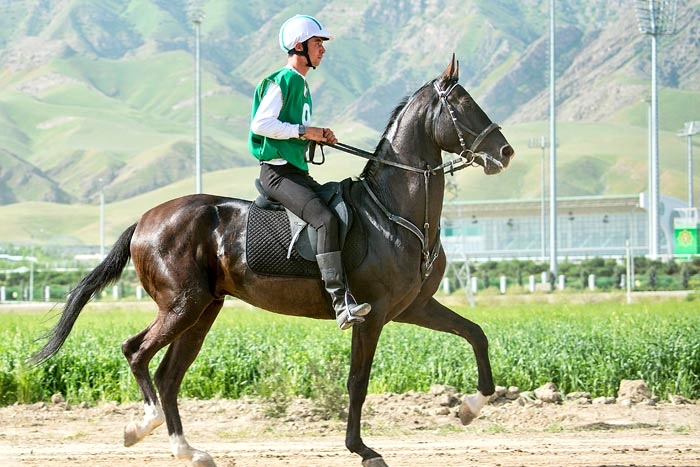Horses have been a part of our lives for centuries, and many of us have a deep connection with these majestic animals. But when it comes to thunder and lightning, it’s important to consider the safety of our horses. Are horses OK in thunder and lightning? Read on to find out what the experts have to say.
I. What Causes Thunder and Lightning?
Thunder and lightning are caused by a build-up of electrical energy in the atmosphere. This energy is released in the form of loud thunder and bright lightning. Thunder is created when the air around a lightning bolt is heated up so quickly that it expands and creates a sonic boom.
II. How Do Horses React to Thunder and Lightning?
Horses can be frightened by thunder and lightning. Their reaction can range from mild unease to a full-blown panic attack. During a storm, horses may become agitated and start to pace, kick, or even bite. The flashes of lightning can also startle them.
III. The Risk of Injury to Horses During a Storm
Horses are naturally curious creatures and may be tempted to investigate the thunder and lightning. This can lead to them putting themselves in dangerous situations, such as running into fences or other objects, or even running away. The lightning itself can also be dangerous, as it can cause electric shock, burns, or even death.
IV. How Can We Minimize the Risk to Horses During a Storm?
The best way to keep horses safe during a storm is to minimize their exposure to the thunder and lightning. If possible, bring the horses indoors or into a sheltered area, such as a barn or stable. If the horses are outdoors, provide them with a secure enclosure that can protect them from the elements. It’s also important to be aware of the signs of stress in horses and be prepared to intervene if necessary.
V. Knowing Your Horse’s Individual Needs
It’s important to understand your horse’s individual needs when it comes to thunder and lightning. Some horses may be more fearful than others, and may need more protection and reassurance during a storm. It’s also important to be aware of the weather forecast and plan accordingly.
VI. What to Do if Your Horse Becomes Fearful During a Storm
If your horse becomes fearful during a storm, it’s important to remain calm and assuring. Speak quietly and try to keep the horse moving, as this can help to distract them from the thunder and lightning. If necessary, you can cover the horse’s eyes with a blanket to help reduce their fear.
VII. Comforting Your Horse After a Storm
After a storm, it’s important to look out for signs of stress or trauma in your horse. Make sure to provide them with extra reassurance and comfort, such as a good brushing or a nice walk. It’s also important to check for any injuries or signs of shock, as this can be a sign that the horse has been affected by the lightning.
VIII. How to Prepare Your Horse for a Storm
The best way to prepare your horse for a storm is to get them used to loud noises. This can be done by playing recordings of thunder and lightning, or by using a thunder sheet. This will help the horse to become accustomed to the sound of thunder and lightning, which can help to reduce their fear.
IX. Understanding the Risks of Thunder and Lightning
It’s important to understand the risks that thunder and lightning can pose to horses. While these storms can be frightening, it’s important to remember that the risk of injury is low if the proper precautions are taken. By taking the necessary steps to protect your horse during a storm, you can help to keep them safe.
X. Conclusion
Thunder and lightning can be frightening for horses, but with the proper precautions, you can help to keep your horse safe. Understanding your horse’s individual needs, as well as preparing them for a storm, can help to reduce their fear and minimize the risk of injury. By following these tips, you can ensure that your horse is safe during a storm.

